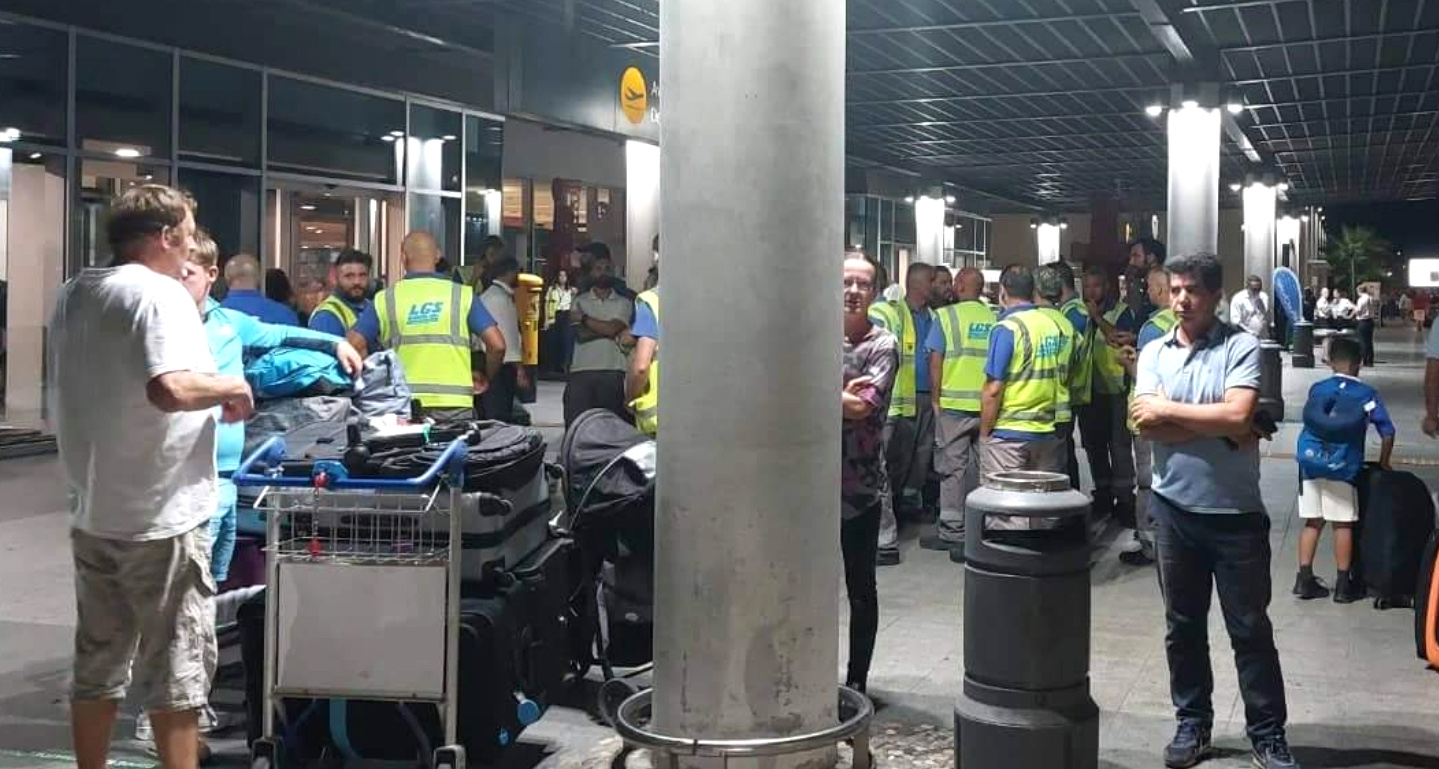After the two-hour strike on Saturday evening at Paphos airport, which inconvenienced the passengers of eight flights, Transport Minister Yiannis Karousos felt obliged to reassure ground staff workers taking part in the strike that their rights were protected.
LGS workers (70 in Paphos and 40 in Larnaca) took action because they fear they would lose their jobs when another company takes over the ground services contract in November. While the workers’ fears are understandable, their decision to inconvenience innocent tourists who have nothing to do with their situation is not. They were obviously seeking attention and putting pressure on the government. In this respect the strike worked, as union representatives were invited to the transport ministry for talks on Monday and these are set to continue next week.
Karousos also gave assurances when he told journalists: “The workers are protected by decree of the transport minister in which it is clearly stated that the employment of redundant staff is part of the licence of the company, a licence which would be cancelled if it does not comply with the collective agreements.” Airport regulations clearly stated, that for “whatever needs new companies have, priority is given to the employees that were made redundant at other companies.”
The decree was passed, presumably, because the government knew the ground services contract was to go to another company and it wanted to protect workers, but it seems wrong to impose such restrictions on a new company, especially when the government’s objective is to secure lower charges for the airlines. As Karousos explained, the government decided to open up the market at the airports because the charges imposed by the two companies that had ground services contracts were too high and airlines were complaining. Big airlines had threatened to stop flying to Cyprus because of the charges.
The opening up of the market, said Karousos, led to a reduction of the charges by 40 per cent. But this might not last if the new companies are obliged to hire the workers laid off by the old contractor on the same terms and conditions. One of the reasons a new contractor can offer a service at a lower price is because of the ability to hire new staff at lower starting salaries. By imposing workers on the new contractor on relatively high salaries, because of years of service with another contractor, the government is undermining the idea of the open market and the ability to ensure lower airport charges.
The government cannot have both lower airport charges and workers on higher wages than the contractor would have had to pay if there was no obligation to hire redundant staff. There cannot be an open market for services but a closed market for labour. This business model is doomed to failure.







Click here to change your cookie preferences